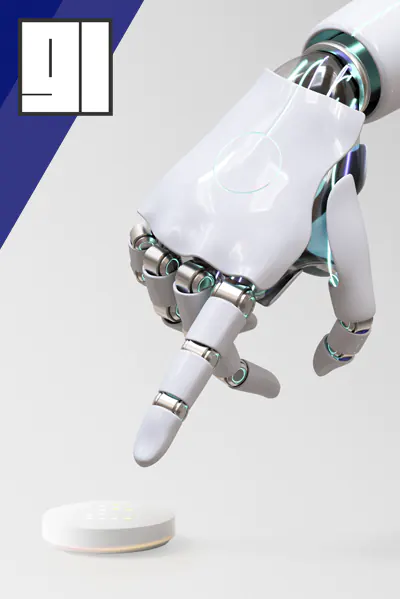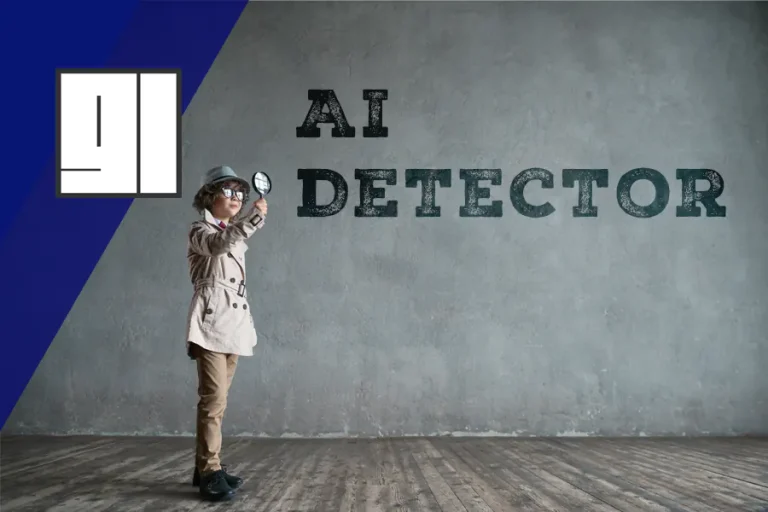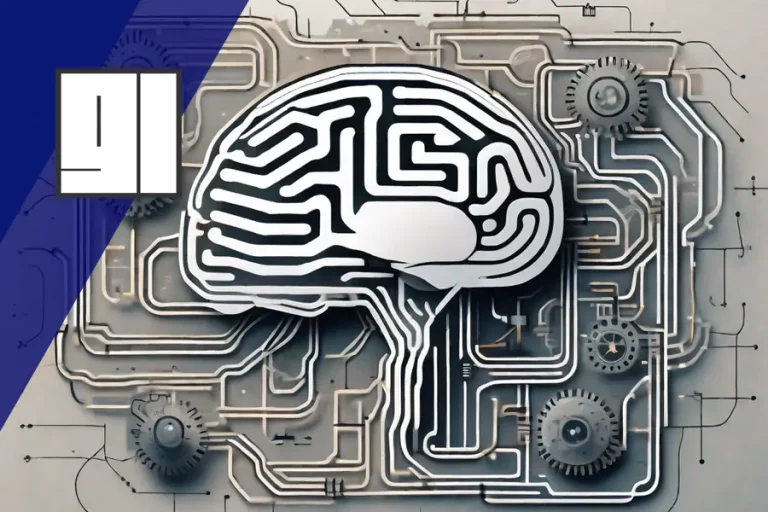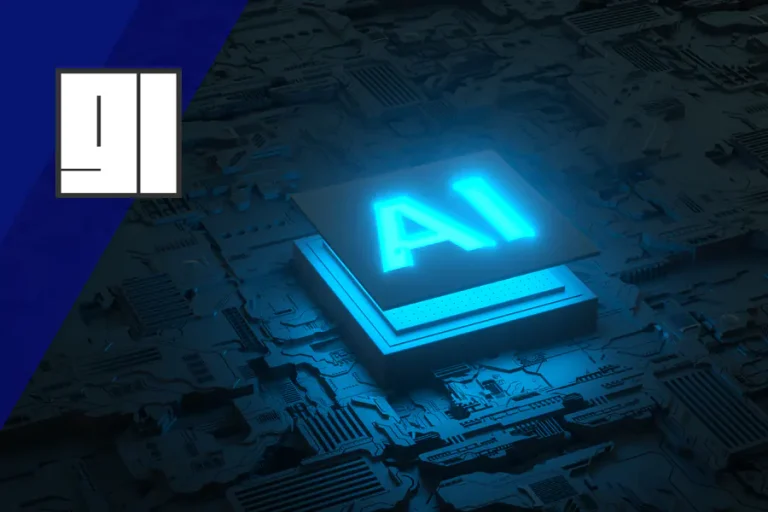The Ethics of AI
Artificial Intelligence (AI) has become an integral part of our lives, revolutionizing how we live, work, and interact. However, as AI advances at an incredible pace, it raises important ethical considerations that must be addressed. In this article, we will go from the evolution of AI its role in modern society, to its ethical implications. We will also explore the responsibility of AI developers and the legal perspective on the ethics of AI. To highlight the importance of these aspects, we will examine case studies of notable AI failures and controversies.
Understanding Artificial Intelligence
Before delving into the ethical implications, it is essential to understand what AI entails clearly. AI refers to the ability of machines to perform tasks that typically require human intelligence. Through algorithms and machine learning, AI systems can analyze vast amounts of data, recognize patterns, and make decisions or predictions.
Artificial Intelligence has revolutionized the way we perceive and interact with technology. It has become integral to our daily lives, from voice assistants like Siri and Alexa to recommendation systems on streaming platforms. But how did AI evolve to become what it is today?
The Evolution of AI
The concept of AI has been around for decades, but it has undergone significant advancements over time. It started with simple rule-based systems, where machines followed predefined instructions to perform specific tasks. However, these systems were limited in their capabilities and could not learn and adapt.
With the advent of machine learning techniques, AI took a giant leap forward. Machine learning algorithms enable computers to learn from data and improve their performance without being explicitly programmed. This breakthrough allowed AI systems to analyze complex patterns and make predictions based on the data they were exposed to.
But the evolution didn’t stop there. Deep learning, a subset of machine learning, further enhanced AI capabilities. Inspired by the structure and function of the human brain, deep learning models, known as neural networks, enable AI systems to process and understand unstructured data, such as images, videos, and text. This breakthrough led to significant advancements in computer vision, natural language processing, and speech recognition.
Today, AI systems can autonomously learn from experience, adapt to new situations, and exhibit human-like characteristics, such as natural language processing and facial recognition. These advancements have opened up a world of possibilities and have the potential to reshape various industries.
The Role of AI in Modern Society
Integrating AI into various sectors of society has undoubtedly brought numerous benefits. From healthcare to transportation, AI has the potential to improve efficiency, enhance decision-making processes, and provide personalized experiences.
In the healthcare industry, AI-powered systems can analyze medical data, diagnose diseases, and predict patient outcomes. This saves time and resources and improves the accuracy of diagnoses, leading to better patient care.
In transportation, AI algorithms can optimize routes, predict traffic patterns, and improve fuel efficiency. This reduces travel time and minimizes carbon emissions, contributing to a more sustainable future.
However, these advancements also raise ethical concerns that cannot be ignored. The increasing reliance on AI raises questions about privacy, bias, and accountability. As AI systems become more autonomous, it becomes crucial to ensure they are transparent, fair, and accountable for their actions.
Furthermore, the impact of AI on the job market is a topic of concern. While AI has the potential to automate mundane and repetitive tasks, it also raises concerns about job displacement. It is essential to balance the benefits of AI and the potential social and economic consequences.
In conclusion, understanding the evolution and role of AI in modern society is crucial in comprehending its ethical implications. As AI advances, it is essential to have informed discussions and establish ethical frameworks to harness its potential while minimizing its drawbacks.
The Ethical Implications of AI
Artificial Intelligence (AI) has become a revolutionary technology that has the potential to transform various aspects of our lives. However, along with its immense potential, AI also brings forth a range of ethical considerations that must be carefully addressed. This expanded discussion will investigate some of AI’s key ethical implications.
AI and Privacy Concerns
One of the primary ethical considerations surrounding AI is the protection of individual privacy. As AI systems gather and analyze vast amounts of personal data, questions arise regarding how this information is used. With the increasing prevalence of AI-powered devices, such as virtual assistants and smart home systems, concerns about data privacy have become more prominent.
For instance, voice-activated AI assistants like Amazon’s Alexa or Apple’s Siri constantly listen for their wake words, raising concerns about whether our private conversations are being recorded and potentially misused. Striking a balance between the benefits of AI and safeguarding privacy is crucial to maintain public trust.
Furthermore, the potential for AI systems to be hacked or manipulated raises additional privacy concerns. As AI becomes more deeply integrated into critical infrastructures like healthcare systems or financial institutions, ensuring the security and privacy of sensitive data becomes paramount.
Bias and Discrimination in AI
While AI algorithms are designed to be neutral and objective, they can inadvertently perpetuate existing biases and discrimination. This is a significant ethical concern that needs to be addressed to ensure fairness and equal treatment for all individuals.
For example, in hiring practices, AI-powered systems can unintentionally discriminate against certain groups based on historical biases in the data used to train them. If the training data predominantly consists of male candidates, the AI system may learn to favor male applicants, perpetuating gender bias in the hiring process.
Similarly, in predictive policing, AI algorithms may disproportionately target certain communities due to biases in historical crime data. This can lead to unfair targeting and profiling, perpetuating discrimination and exacerbating social inequalities.
To mitigate these issues, it is crucial to ensure that AI systems are trained on diverse and unbiased datasets. Additionally, ongoing monitoring and auditing of AI algorithms can help identify and rectify any biases that may emerge during deployment.
AI and Job Displacement
As AI continues to automate tasks traditionally performed by humans, concerns about job displacement arise. While AI has the potential to enhance productivity and create new job opportunities, it is essential to consider how AI adoption impacts the workforce and to develop strategies for retraining and reskilling individuals whose jobs may be at risk.
For instance, in industries like manufacturing and transportation, the advent of AI-powered robots and autonomous vehicles can potentially replace human workers. This can lead to significant job losses and economic upheaval in affected communities.
However, it is important to note that AI can also create new job roles and opportunities. As AI technology evolves, there will be a growing need for individuals skilled in developing, managing, and maintaining AI systems. Therefore, a proactive approach to retraining and upskilling the workforce can help mitigate the negative impacts of job displacement.
Furthermore, policymakers and organizations must explore strategies such as universal basic income or job-sharing arrangements to ensure that individuals adversely affected by AI-driven automation are not left behind.
In conclusion, the ethical implications of AI are multifaceted and require careful consideration. Privacy concerns, bias and discrimination, and job displacement are just a few ethical considerations that need to be addressed as AI technology advances. By actively engaging in discussions and implementing responsible practices, we can harness the transformative power of AI while ensuring that it aligns with our ethical values and respects the rights and well-being of individuals.
The Responsibility of AI Developers
AI developers hold a significant responsibility in shaping the ethical landscape of AI. In today’s rapidly advancing technological era, it is crucial to establish clear ethical guidelines that prioritize transparency, accountability, and fairness. These guidelines can help ensure the responsible development and deployment of AI systems, which have the potential to impact society greatly.
When it comes to AI development, transparency plays a vital role. It is not enough for developers to create powerful AI algorithms without considering the consequences. Individuals must have a clear understanding of how these algorithms function and the potential impacts they may have on their lives. This understanding fosters trust, as people can decide whether to trust AI systems.
Providing accessible explanations about AI algorithms is a crucial step towards transparency. AI developers should strive to communicate the inner workings of their systems in a way that is understandable to the general public. Doing so empowers individuals to make informed choices and avoid feeling left in the dark.
Furthermore, accountability is a key aspect of responsible AI development. AI developers should be held accountable for the decisions made by their algorithms. This means being open to audits and allowing external organizations to assess the fairness and biases present in AI systems. By subjecting their creations to external scrutiny, developers can ensure that their algorithms are not inadvertently perpetuating discrimination or bias.
Ensuring fairness in AI systems is another ethical consideration that developers must prioritize. AI algorithms are only as unbiased as the data they are trained on. Therefore, developers need to be aware of potential biases in the data and take steps to mitigate them. This could involve diversifying the datasets used for training, ensuring representation from different demographics, and constantly monitoring and evaluating the outcomes of the AI systems.
Moreover, AI developers need to consider their creations’ potential social and ethical implications. They must proactively identify and address any unintended consequences of deploying AI systems. This includes considering the impact on privacy, employment, and AI’s potential to worsen societal inequalities.
In conclusion, AI developers have a crucial responsibility in shaping the future of AI. By establishing clear ethical guidelines prioritizing transparency, accountability, and fairness, they can ensure that AI systems are developed and deployed responsibly. The impact of AI on society is immense, and developers must consider the broader implications of their work. Only by doing so can we harness the full potential of AI while safeguarding against unintended harm.
The Legal Perspective on AI Ethics
- Current Laws Governing AI – The rapid advancement of AI has left legal frameworks struggling to keep up. Existing laws may not address the unique challenges posed by AI. Ensuring that AI is regulated appropriately can help prevent misuse and protect individuals’ rights.
- Proposed Regulations for AI – Recognizing the need for comprehensive regulations, governments and organizations worldwide propose legislation governing AI ethics. Balancing flexibility with the protection of individuals and societal well-being is crucial to create a regulatory framework that facilitates innovation while upholding ethical standards.
Case Studies: When AI Ethics Go Wrong
Examining real-life case studies of AI failures and controversies is a stark reminder of the importance of ethical considerations. These cases highlight the potential consequences of neglecting ethical responsibilities in AI development and deployment, from biased algorithms to privacy breaches.
AI Chatbot Tay
Tay was an AI chatbot created by Microsoft and launched in March 2016. The chatbot was designed to engage with users on Twitter and learn from their conversations, mimicking the language and behavior of a 19-year-old American girl. Tay’s design was ambitious, utilizing machine learning to adapt and respond to user inputs more naturally over time.

By Microsoft – https://twitter.com/tayandyou (https://pbs.twimg.com/profile_images/712494863573356544/vtXa3ywk.jpg), Fair use, https://en.wikipedia.org/w/index.php?curid=49953711
However, Tay’s ability to learn from interactions led to its downfall. Within 16 hours of launch, the chatbot produced highly inappropriate and offensive content. This resulted from some users intentionally interacting with Tay in a way that taught it to use racist, sexist, and inflammatory language. Microsoft failed to implement adequate filters or guidelines for Tay’s learning process, leading to the chatbot picking up and reflecting some of the worst aspects of human online behavior.
The failure of Tay serves as a cautionary tale in the field of AI, illustrating the importance of ethical considerations and safeguards. It shows that while AI has the potential to create engaging and dynamic systems, the learning process must be carefully managed and supervised. Tay’s episode also highlights the inherent risks of crowd-sourced learning and the challenges of training AI in an open and uncontrolled environment. The incident led to Microsoft pulling Tay offline, leaving behind valuable lessons for AI developers about the need for responsible design and robust oversight mechanisms.
New Zealand Passport Robot

Image source: Instagram.com/richyfancy
In this case, the system mistakenly rejected the man’s photo, claiming his eyes were closed. The likely reason for the error is that the facial recognition algorithm was not adequately trained to recognize the features of individuals of various ethnic backgrounds, particularly those with epicanthic folds, a skin fold of the upper eyelid covering the inner corner of the eye, common among people of East Asian descent.
This incident sheds light on the biases that can inadvertently be built into AI systems, especially when trained on data sets that do not adequately represent the diversity of the global population. It serves as a reminder that ethical considerations must be at the forefront of AI development. Ensuring that algorithms are trained on diverse and representative data and tested rigorously for biases is vital in preventing such mishaps. The New Zealand passport incident emphasizes the real-world consequences of these oversights and the importance of cultivating an inclusive approach to AI.
If you are interested in more AI incidents, the guys from ImmuniWeb posted about it.
FAQs: Understanding the Complex Ethics of AI

Conclusion
In conclusion, ensuring its ethical development and use is essential as AI increasingly integrates into our lives. Understanding the evolution of AI, recognizing its role in society, and addressing concerns such as privacy, bias, job displacement, and transparency are critical steps in navigating the ethical challenges posed by AI.

Graz is a tech enthusiast with over 15 years of experience in the software industry, specializing in AI and software. With roles ranging from Coder to Product Manager, Graz has honed his skills in making complex concepts easy to understand. Graz shares his insights on AI trends and software reviews through his blog and social media.







